Born in 1976 in Hunan province (China), Thich Kha was once admired as a prodigy and the pride of his family and village.
Since childhood, he stood out with his outstanding intelligence, always leading in exams. That intelligence helped Thich Kha pass the entrance exam to Tsinghua University with 636 points - an achievement that not many people can achieve.
However, Thich Kha's childhood was not peaceful. Born into an ordinary working-class family in Xiangtan City, Hunan Province (China), the boy did not have a special starting point, but Thich Kha's parents placed huge expectations on him.
From elementary school, all of Thich Kha's activities were programmed: studying almost all day, no playing, no watching cartoons, no making friends. All activities that "don't serve the purpose of achievement" were eliminated. Teachers expressed concern about the boy's closed, isolated personality, but Thich Kha's parents did not care much. In their eyes, grades were the measure of success.

Although he graduated from Tsinghua University with excellent results, Shi Ke lacked the basic skills to adapt to real life, leading to a series of tragedies. (Photo: Baidu)
On the surface, this method of education seems to be effective. Thich Kha is intelligent, studies well, and has outstanding achievements. But when the boy enters a larger environment, all his limitations become clear.
At Tsinghua, he found himself surrounded by classmates who were not only academically excellent but also knew how to communicate, work in teams, and adapt to pressure. Lacking basic social skills, Thich Kha gradually felt weak and lost. Withdrawal and isolation began to form.
After graduating, Shi Ke joined the Institute of High Energy Physics of the Chinese Academy of Sciences . This is an ideal starting point for any talent who wants to develop their career.
Reality was not as dreamy as it seemed: The office environment required communication skills, coordination, and the ability to present opinions - things that Thich Kha had never learned. Unable to adapt, he was quickly judged as "unsuitable", gradually left behind and fired.
The early failure led to many other events. Thich Kha tried many manual jobs, from distributing leaflets, working as a factory worker to carrying heavy loads at construction sites, but none of them lasted more than a few weeks. For someone who had been protected since childhood, adapting to real-life pressure was too difficult.
In the end, Thich Kha had to return to his hometown to depend on his parents, suffering from depression for more than a decade. Now, at nearly 50 years old, he still has not been able to stabilize his career, and has tried many different jobs but failed.
The story of Shi Ke is still widely shared by Chinese netizens. A prodigy who entered the most prestigious school in China but in the end could not stand on his own in modern society. He had knowledge but lacked basic life skills.
The cause is not entirely Thich Kha's fault, but begins with his parents' extreme way of educating him. They put their child's entire life into academic achievement, ignoring the child's need to live naturally and learn social skills. When Thich Kha fell, he had no luggage to get up.
Chinese education experts warn that focusing too much on academic achievement and neglecting life skills education can have long-term consequences. Children need not only knowledge but also the ability to communicate, work in teams, manage emotions, make decisions and adapt to the social environment. Without these skills, no matter how excellent a child is, it will be difficult to succeed in real life.
Source: https://vtcnews.vn/than-dong-dai-hoc-danh-gia-va-bi-kich-tuoi-tho-bi-phu-huynh-kiem-soat-ar963320.html




![[Photo] Rescuing people in flooded areas at the foot of Prenn Pass overnight](https://vphoto.vietnam.vn/thumb/1200x675/vietnam/resource/IMAGE/2025/9/6/19095b01eb844de98c406cc135b2f96c)

![[Photo] Many people directly experience beloved Uncle Ho and the General Secretaries](https://vphoto.vietnam.vn/thumb/1200x675/vietnam/resource/IMAGE/2025/9/6/2f4d9a1c1ef14be3933dbef3cd5403f6)
![[Photo] 80th Anniversary of the General Staff of the Vietnam People's Army](https://vphoto.vietnam.vn/thumb/1200x675/vietnam/resource/IMAGE/2025/9/6/49153e2a2ffc43b7b5b5396399b0c471)
![[Photo] General Secretary To Lam attends the 80th Anniversary of the General Staff of the Vietnam People's Army](https://vphoto.vietnam.vn/thumb/1200x675/vietnam/resource/IMAGE/2025/9/6/126697ab3e904fd68a2a510323659767)
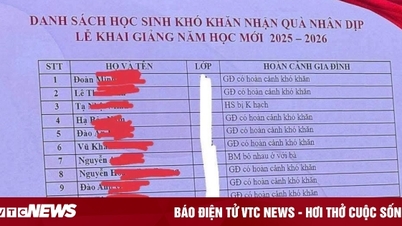























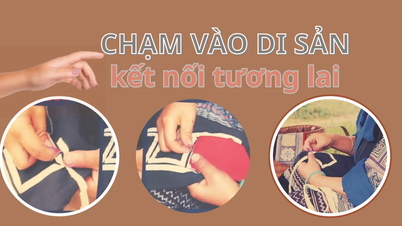











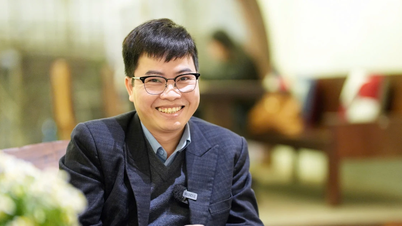
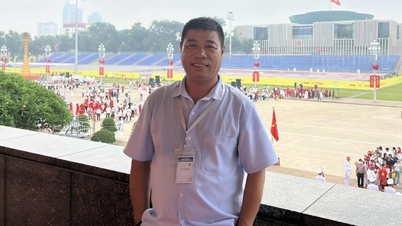




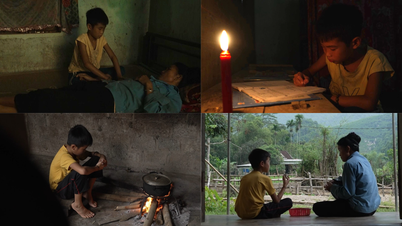





































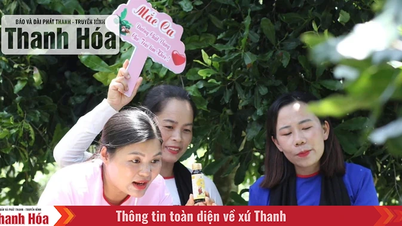





Comment (0)